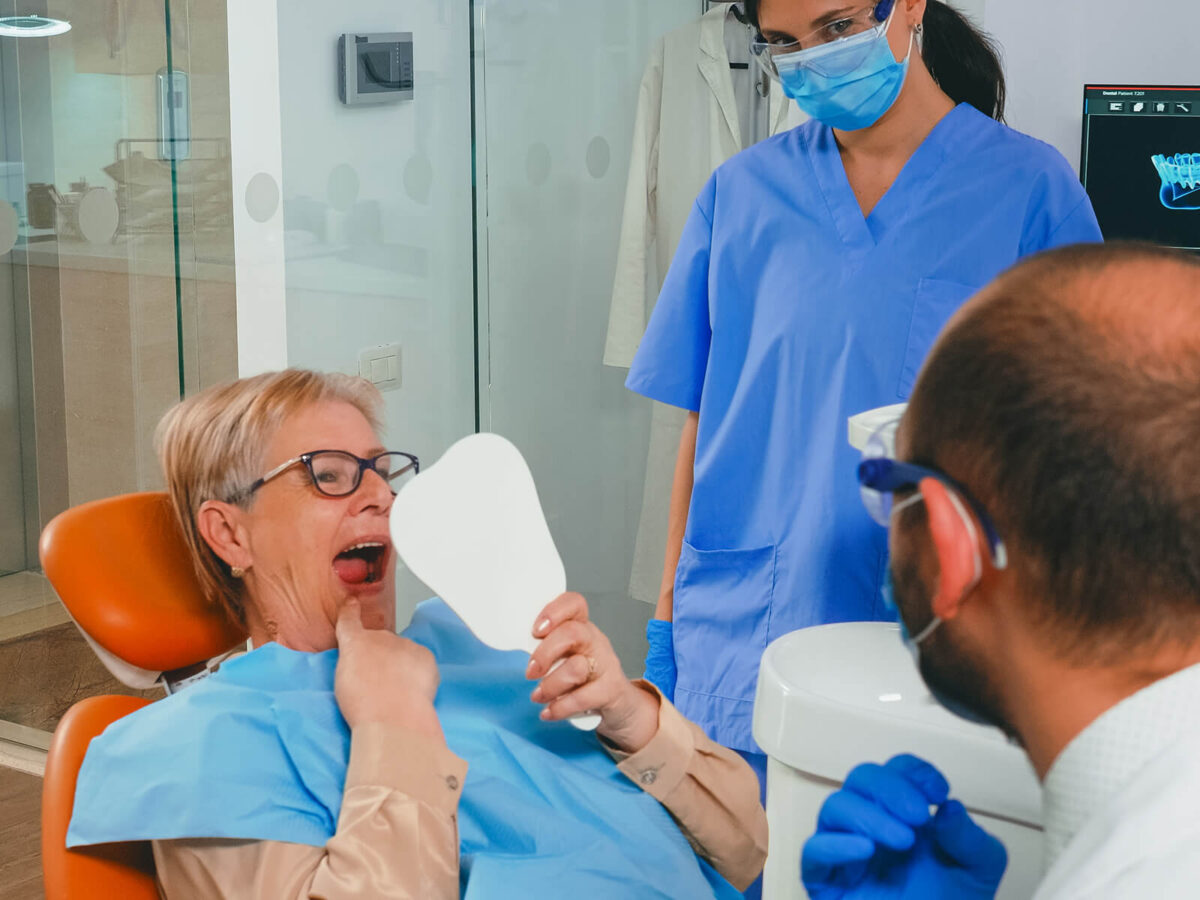Blog
Dental hygiene tips for healthy teeth & gums

The Impact of Aging on Oral Health: What To Expect As You Grow Older
As we age, it gets harder to take better care of our teeth and gums, but it’s also important. As we get older, our mouth health can change in many ways. Personal decisions, changes that happen naturally to the body, and broad health issues are all part of this issue.
If we want to keep our mouths healthy as we age, we need to be aware of these changes and know how to handle them. What do you think will change about your life as you age? This article discusses the relationship between aging and oral health. Let’s explore.
Changes in Oral Health with Age
-
Wear and Tear
As people age, they lose teeth. If you chew or grind your teeth, or if you eat or drink acidic things, tooth loss can happen over time. The enamel that covers teeth can wear away over time from normal use. Hence, you are more likely to lose teeth, have sensitive teeth, or damage your teeth. Wear and tear on teeth over time can cause them to crack or break.
-
Gum Health
Because of issues like less saliva, changes in the immune system, and plaque growth, the gums become less healthy. If you don’t treat gingivitis, it can get worse and turn into periodontitis, a much worse gum disease that can cause you to lose your teeth.
-
Dry Mouth
Older people often have dry mouths because they are taking certain medications, have chronic diseases like Sjögren’s syndrome, or don’t make enough saliva. It is important to take care of your mouth because saliva helps your body digest food.
Saliva also fights disease and balances hormones. It is hard to breathe and talk when you don’t have enough saliva. It’s also more likely that you will get gum disease and weak teeth. -
Broken Teeth
People over 65 lose their teeth more often because they observe dental changes with age. Today, people lose teeth less often because of better dental care, but it is still a big problem. When you lose teeth, eating, talking, and feeling confident can be hard. To get back on track, you might need dentures or some other kind of false teeth.
-
Mouth Cancer
Mouth cancer is more likely to happen to older people; most people who get it are over 50. You are more likely to get it if you smoke, drink, or have an HPV infection. To find and treat mouth cancer early, people need to schedule regular checkups with their dentist.
Maintaining Oral Health as You Age
Regular Dental Visits
Regular trips to the dentist are important if you want to catch problems like gum disease, tooth decay, and mouth cancer early. Dentists can clean your teeth properly, spot problems early, and give you tips on how to treat them or change your lifestyle.
Proper Oral Hygiene
Taking good care of your teeth is very important. For healthy gums and teeth, rinse your mouth with an antibacterial mouthwash after each meal, floss every day, and brush your teeth twice a day with fluoride toothpaste. Electric toothbrushes and water flossers might be a better alternative for people who have trouble using normal toothbrushes.
Managing Dry Mouth
To prevent dry mouth, drink a lot of water and use mouthwashes or saliva substitutes. You can also chew sugar-free gum instead of snacks that are high in sugar and may cause your mouth to produce more saliva. If you have dry lips, staying away from tobacco, alcohol, and caffeine can also help manage aging and oral health troubles.
As people age, their mouth health changes in many ways. Aging and oral health have a long-built relationship. Having your teeth checked regularly, for example, can help prevent or lessen many problems before they happen.
By consulting a dental professional, you can learn about the unique challenges of getting older and taking good care of your teeth and gums. This will help you keep your teeth healthy and your confidence high.


